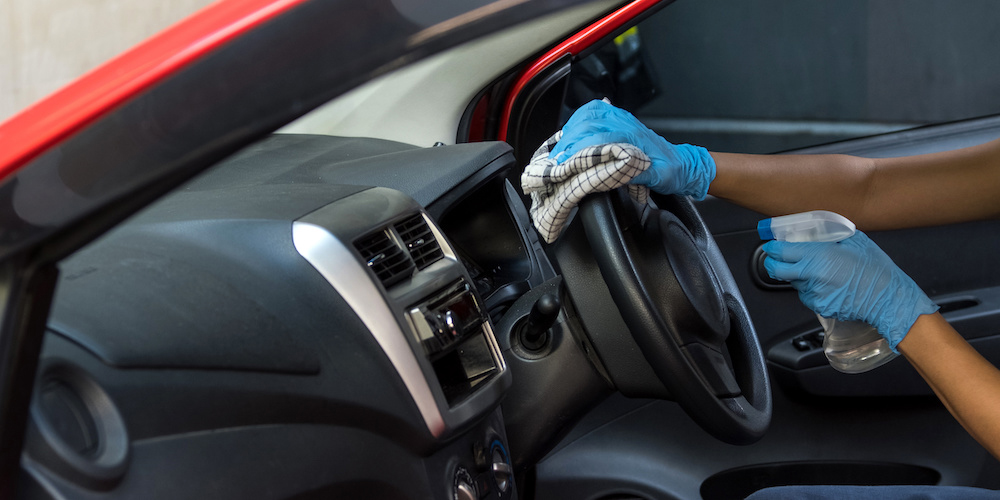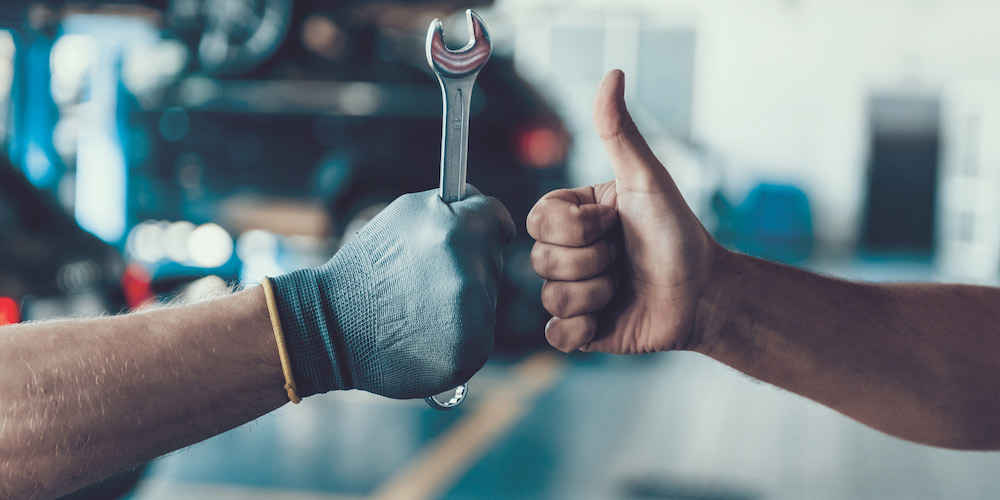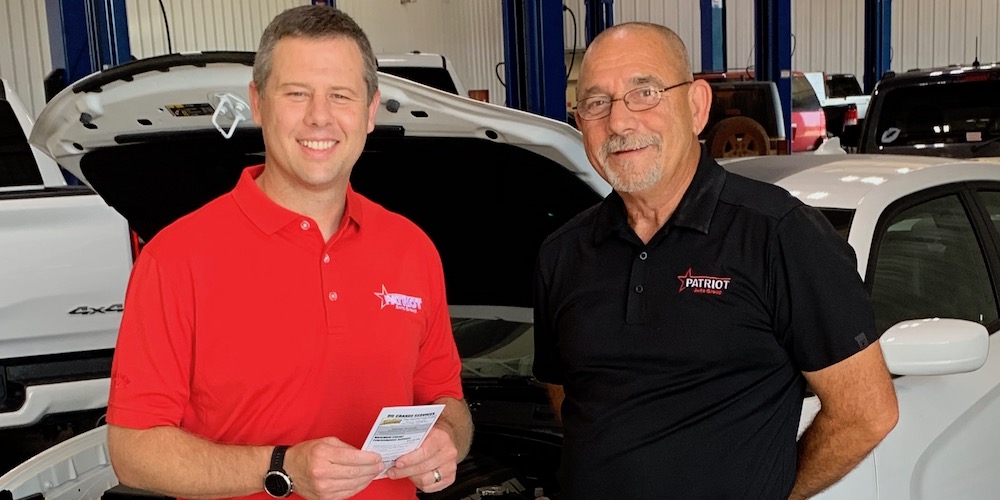
By Charlie Polston, Automotive Customer Retention and Profitability Consultant, BG Products, Inc.
America is once again open for business… sort of. The threat of catching the virus through person-to-person contact will be with us for some time, but savvy businesses are figuring out how to move forward.
I refuse to accept the current situation as the new normal, although, I must concede it is the ‘now’ normal. The issue is not reopening your service department (since 95% of you never shut down); the issue is getting customers back to the service drive.
The centerpiece of restoring your traffic revolves around customer confidence – a fragile perception that is easily lost. Specifically, I’m talking about vehicle owners having confidence that they won’t contract the virus after visiting your dealership. With that said, it doesn’t require much effort to instill confidence that you are going above and beyond to sanitize vehicles before returning them:
- Advertise the sanitization procedures on your website and in any emails that you send to your customer base.
- When your advisors or service BDC personnel proactively reach out, make sure they explain all that your team is doing to protect the vehicle owner’s health.
- Tell them about your sanitization procedures when you set the appointment.
- Remind them at the time of the write-up.
- Let them see you sanitize their vehicle before delivery.
The sanitization process is simple. First, spray down all the hard surfaces like steering wheels, shifter knobs, and door handles. Next, disinfect and deodorize cloth seats, headliners, and seatbelts. Lastly, you kill the bacteria, viruses, mold, and fungi in the A/C system.
You complete the process by cleaning the key fob and putting it in a Ziplock bag.
The entire process takes just a few minutes, but like hand washing, social distancing, and covering your mouth when coughing – sanitizing vehicles must be a standard operating procedure. And again, remember that the customer needs to see you doing this. Perception is the key to restoring customer confidence. Allow me to illustrate.
Just before our governor shut down all the restaurants, gyms, nail salons, and barbers in our state, I was able to get Joni to squeeze me into her schedule for a haircut. I arrived in time to watch her finish up with the guy ahead of me.
He paid her in cash. She sprayed the money with disinfectant (both sides) before placing it in the cash register. Then, she began an elaborate process of spraying the chair, sink, counter, and hairdryer. Next, she washed her hands with the thoroughness of a surgeon.
She intentionally did all of this while I was watching. Realize, this happened at the height of the pandemic with dire predictions of death and devastation. I was deeply impressed with the extra effort she went through to protect my health. I’ve told the story countless times since then and my consumer confidence in her hair studio went sky high. (By the way, I gave her a 200% tip… it was worth it.)
I’m telling you, if you’ll get this sanitization-prior-to-automobile-delivery process in the fiber of your DNA (every car, every time) it will make a lasting impression on how customers view your shop. The word will spread, and your drive traffic will increase.
On a related subject, let’s talk about pent-up demand versus pent-up need. As America gets back to business there will be a pent-up demand for many goods and services. There’s a lot of pent-up demand for hair and nail salons, barbers (I went seven weeks and started looking like the neighbor’s dog), movies, and taking your sweetie out for a romantic dinner.
There’s pent-up demand for elective surgeries, dental work, business suits and dresses, hand soap, and toilet paper. Demand means that people know they have been denied these things for several months and they will buy it without any prompting at all. They want it!
To a lesser extent, there is some pent-up demand for automotive repair. If the car is broken, it must be fixed to reliably get to work. Demand will naturally bring a few vehicle owners to your dealership. They are forced to come to your shop to avoid disruption to their lives and their livelihood by having an unreliable vehicle.
But there is no pent-up demand for preventative maintenance. However, there is a tremendous pent-up NEED for preventative maintenance.
“If you’re waiting for pent-up demand to provide a post-pandemic revenue stream, you’re going to starve. But if you proactively pursue pent-up needs (needed preventative maintenance) the possibilities are endless – including increased CSI, retention, and profitability.“
There is no demand for preventive maintenance, because while everyone knows they must fix their car when it breaks – no one knows what to do to keep their car from breaking. Therefore, we must point out what their car needs. We cannot passively wait for them to ask for preventive maintenance services (that will never happen.) We must proactively ask them to have those services performed.
Pent-up demand requires no salesmanship; people know what they want, and they demand it.
Pent-up need, on the other hand, requires a trained sales professional to point out the maintenance need, present the solution, and ask the vehicle owner to purchase it.
Two kinds of service advisors, technicians, and service managers will emerge as this national crisis fades.
The first group includes those that sit back and wait for vehicle owners to demand their cars be fixed. They will have low paychecks, low CSI, low retention, and bad attitudes. These folks watch things happen and hope for the best.
The other group consists of winners and leaders that proactively point out necessary maintenance to protect vehicle owners from costly, catastrophic failure. They’ll have satisfied customers that return to the dealership to spend more money. They’ll have higher paychecks and will be able to earn enough money to make up for any losses during the pandemic. These folks make things happen.
So, there are two kinds of people; those who make things happen and those who watch things happen. (Okay, I guess there’s a third kind: those who wonder what happened.) Which are you? *






